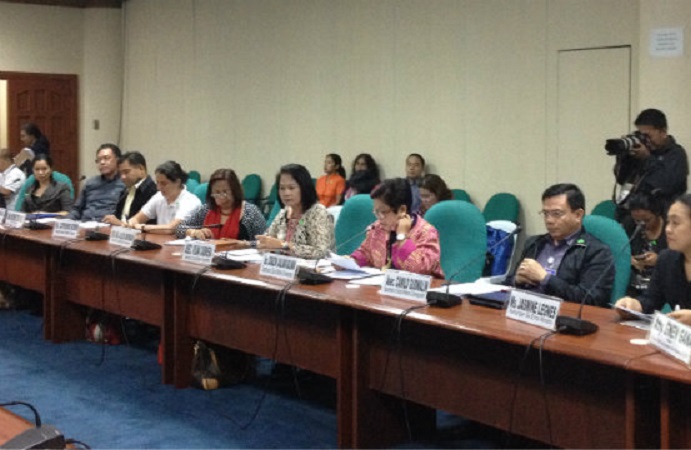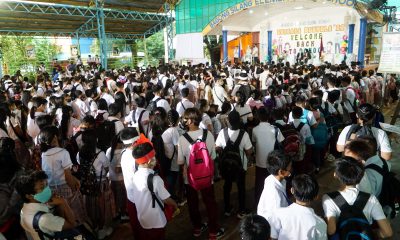Breaking
MCCT program is for the poor with ‘no permanent address’ — Soliman

DSWD Sec. Dinky Soliman appears before the Senate to explain the alleged hiding of poor families during the Papal visit (screengrab from Rappler footage)
MANILA — The Department of Social Welfare and Development (DSWD) said on Tuesday the government’s Modified Conditional Cash Transfer (MCCT) program is meant for the vulnerable poor sectors not included in the National Household Targeting System for Poverty Reduction (NHTS-PR) data-base of 2009 for lack of permanent address.
Appearing at a Senate inquiry on the MCCT program, DSWD Secretary Corazon J. Soliman said that because the street dwellers do no have permanent address, which is a basic requirement for the data-base, the said group of people is not among the poor beneficiaries receiving assistance under the Conditional Cash Transfer (CCT), also dubbed as Pantawid Pamilyang Pilipino Program (4Ps).
CCT or 4Ps is one of the poverty-alleviation programs of the DSWD that provides cash grants for education and health of the children of beneficiary families as an “investment” which targets the children to finish their studies and be employable members of society.
Secretary Soliman explained that the MCCT is patterned after the CCT, conceived to be an alleviation program that appropriately caters to the street dwellers and indigenous groups that are in nomadic conditions due to lack of permanent dwelling.
Through the MCCT program Soliman piloted in 2013, appropriate social welfare interventions were designed like giving of similar cash grants for health and education of children and paying rental fee for the apartment of the “homeless” beneficiaries for a period of six months to 12 months.
Within that period, the agency is linking the said beneficiaries to livelihood and skills trainings to make them employable.
At present, close to 2,500 families in the National Capital Region (NCR) are benefiting from the program.
The rental of the apartment is a way to instill upon the street dwellers and indigenous people the safety and convenience of living in a secured home — even just a small one to fit the family — where there are windows and doors that can protect them from danger, unlike living on the streets.
The children of the beneficiaries under the program are required to attend school through the Alternative Learning System (ALS) mode of education of the Department of Education (DepEd) and have regular consultation with a designated health center, usually near the place where the agency is paying the rent of the apartment for them.
Soliman also said that as part of the inclusion of the homeless beneficiaries in the program, the DSWD regularly conducts family camp-out activities as a form of orientation on the assistance that the government is willing to provide for them. Such camp-out is part of the effort to instill upon them that “a street is not the best place for the family, especially for children, as it poses many risks.”
She explained that the family camp-out activity teaches basic family values like loving, protecting, helping and respecting each other and also prevents the disintegration of families through the parenting sessions wherein the parents are educated or reminded about their responsibility to their children.
The DSWD chief said a total of six camp-out activities have been conducted from 2011 to 2015 in coordination with the local government units (LGUs) as active partners who identify the street families and children and serve as rescuers of those who are abandoned, abused or in difficult situations.
In the Senate inquiry, some of the street dwellers who were included in the camp-out activities testified that they were not forced to join but were asked if they wanted to join.
A street dweller with the name “Elsa” said she joined to have a bonding opportunity with her family.
A female street kid said she was happy because they were given lectures on the rights of children.
An MCCT beneficiary testified that the DSWD’s program has changed their lives by initially renting an apartment for them. She said that right now, the family is able to rent the apartment on their own as she is now employed because of the skills trainings given her.
A total of 427 individuals or about 100 families were included in the latest camp-out activity conducted from Jan. 14-19.





















